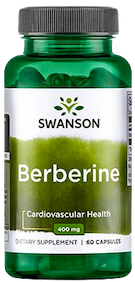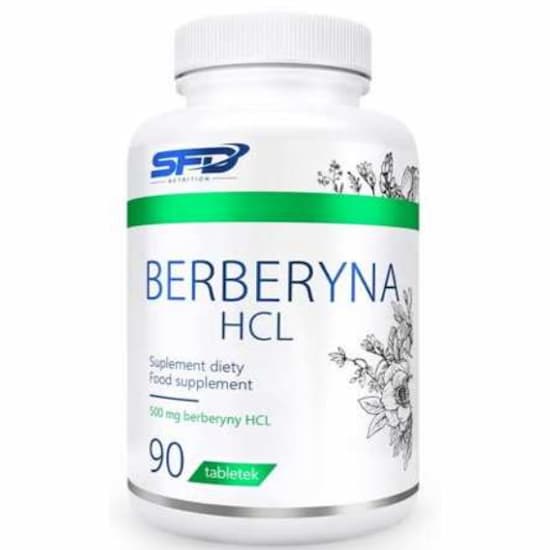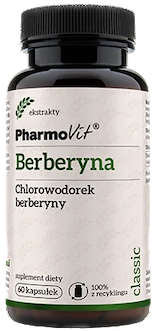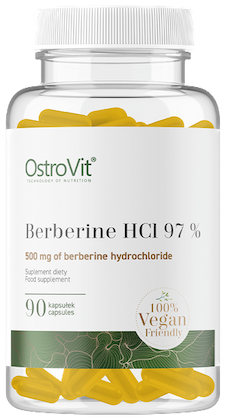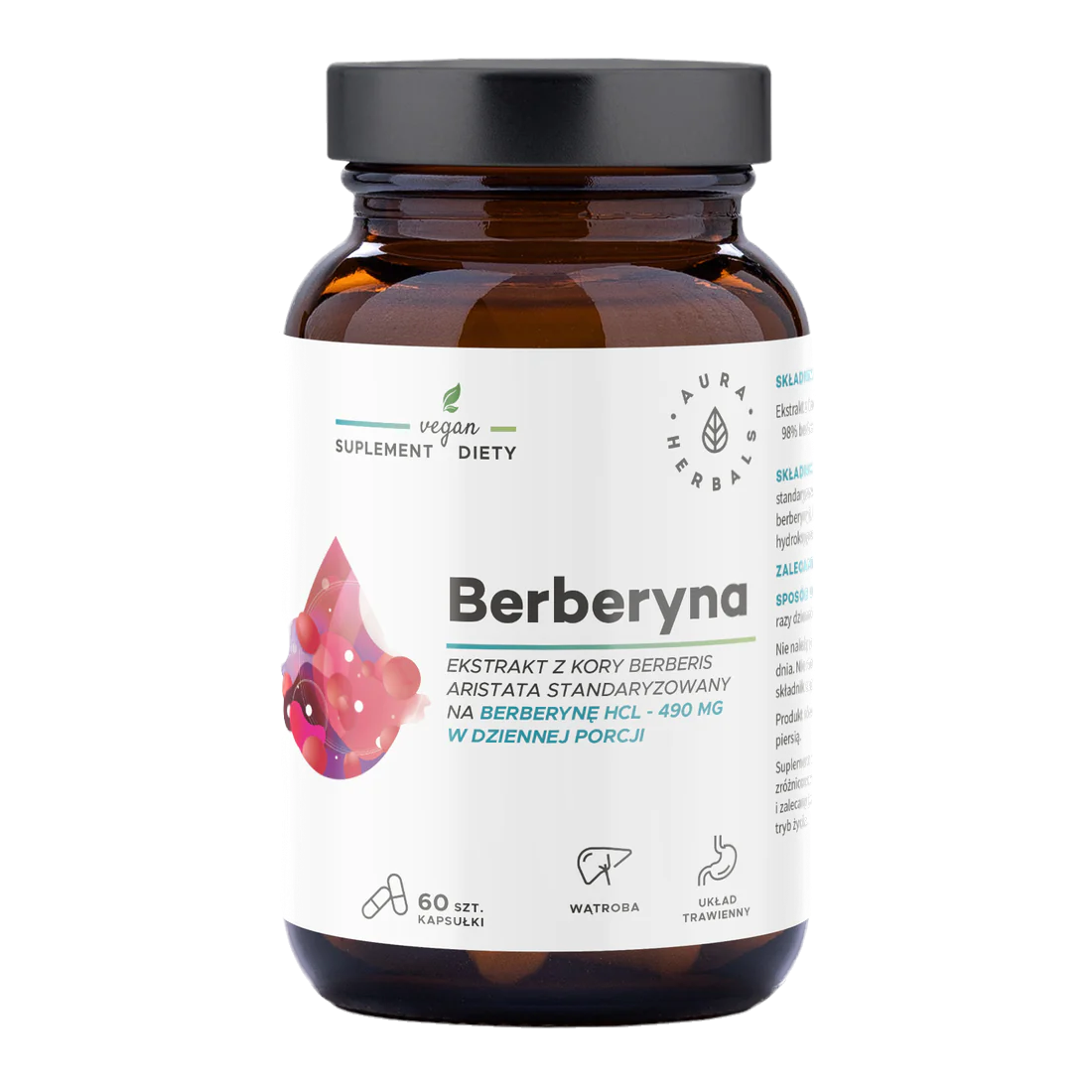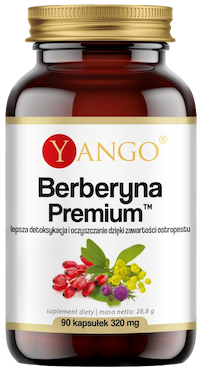Berberine contraindications (can you take berberine and other supplements or medicine?)
Not everyone can test the effects of berberine. Find out if you can use it.


Learn more about our editorial process
.

Learn more about our editorial process
.

Learn more about our editorial process
.

Learn more about our editorial process
.
Why you can trust us
Articles on Natu.Care are written based on scientific research, data from government websites and other reliable sources. The texts are written in cooperation with doctors, nutritionists and other health and beauty experts. Articles are reviewed before publication and during significant updates.
.Learn more about our editorial process
.Information about advertisements
Content on Natu.Care may contain links to products from the sale of which we may receive a commission. When creating content, we adhere to high editorial standards and take care to be objective about the products discussed. The presence of affiliate links is not dictated by our partners, and we select the products we review ourselves completely independently.
.Learn more about our terms and Conditions
."If you can't do something and you really want to, you can". - noted the inscription on a customer's T-shirt in a pharmacy. If we applied this fickle 'rule' to dietary supplements, we would be doomed.
Unfortunately - you may very much want to try berberine, but in certain circumstances it will sooner harm you than help you. An expert and I have put together the contraindications to berberine for you - see if it will be OK for you. And if it's not, we'll suggest alternatives.
From this article you will learn:
- Who should not consume berberine. .
- What properties berberine has. .
- What are the alternatives to berberine if you can't use it.
- What are the alternatives to berberine if you can't use it.
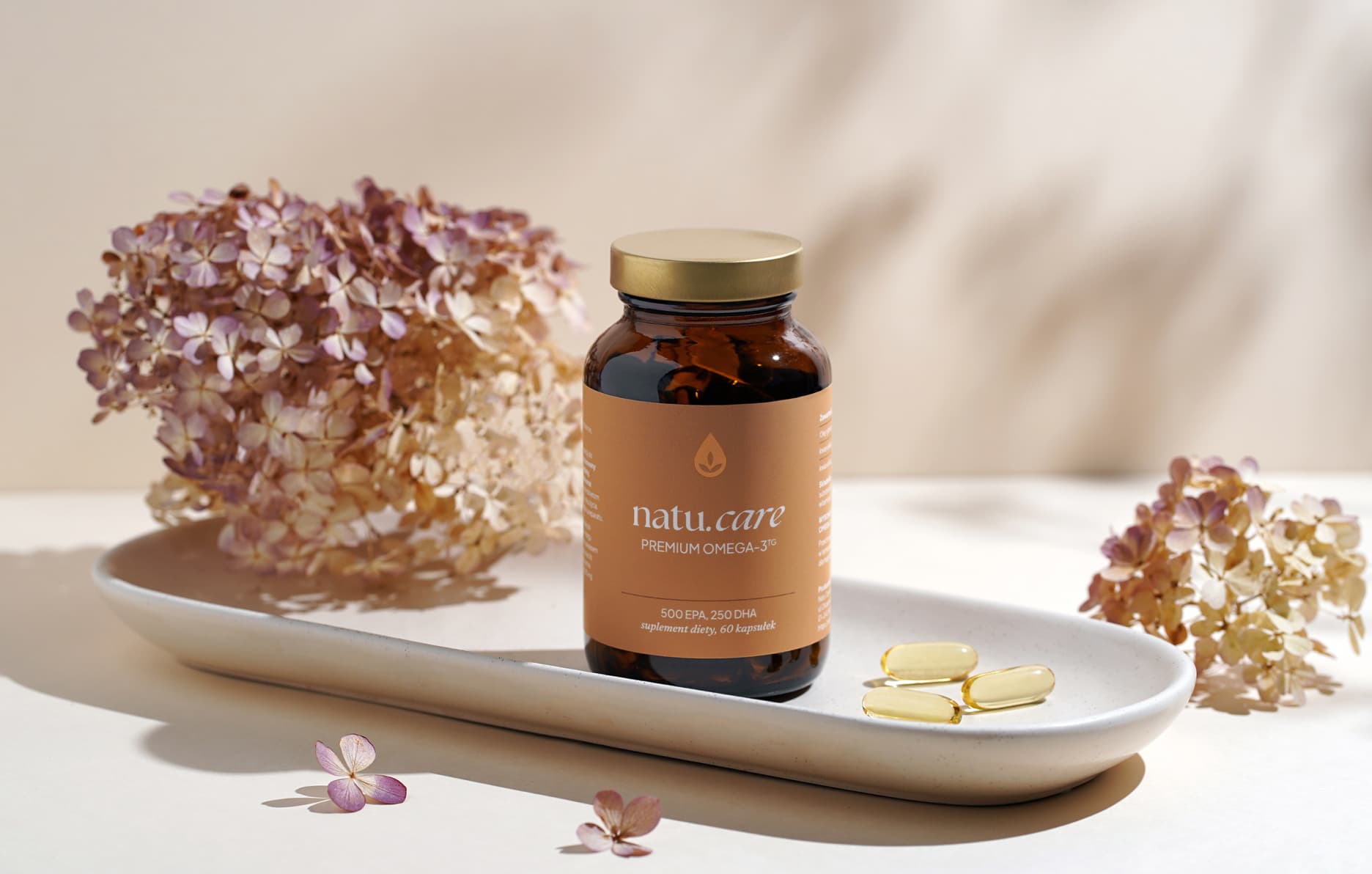
Sprawdź, za co pokochały go tysiące klientek Natu.Care Premium Omega-3ᵀᴳ -15% z kodem BLOG15
Natu.Care Omega-3ᵀᴳ Premium
Natu.Care Omega-3ᵀᴳ Premium dla zdrowia serca, mózgu i odporności. Najlepsza przyswajalność. Optymalna dawka 750 mg. Przebadana przez niezależne laboratorium.
Zobacz więcej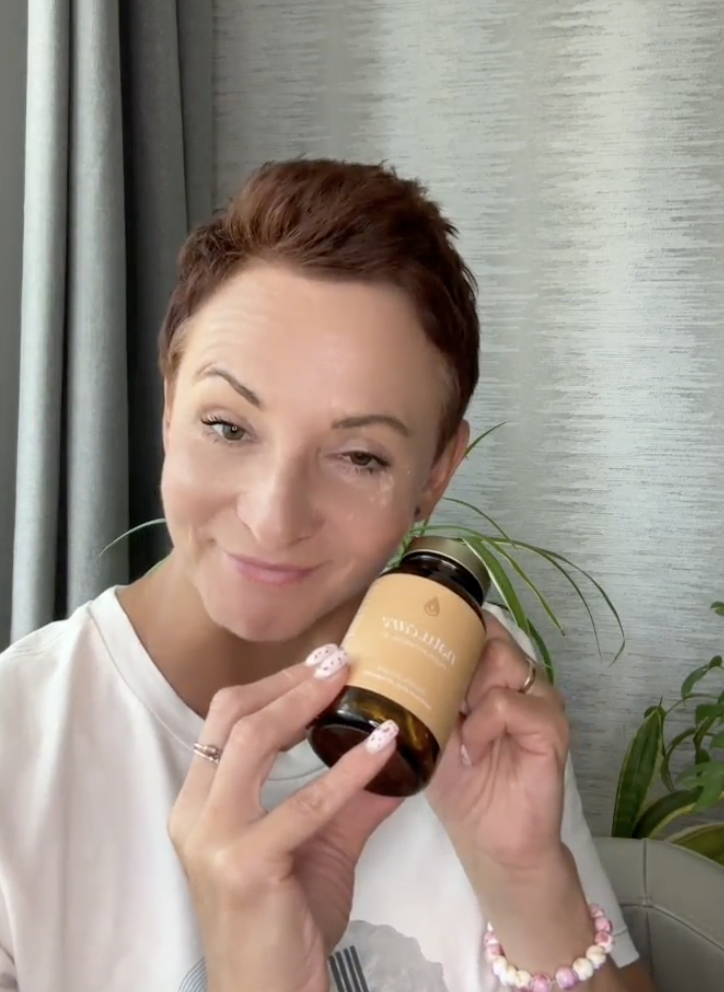
Produkt ma super skład, transparentną etykietę i co dla mnie jest ważne – małe kapsułki do połknięcia. Nie ma też nieprzyjemnego efektu odbijania rybą, który miałam spożywając inne produkty. Widzę znaczną poprawę odporności. Polecam!@Kasia P.
See also:
- Berberine
- Berberine - side effects .
- Berberine for weight loss
- Swanson berberine - composition analysis
Contraindications to the use of berberine
.
Contraindications to berberine use include pregnancy, breastfeeding, age under 18, hypersensitivity to berberine and use of certain medications. Do not use berberine without consulting your doctor if you are undergoing chronic treatment and taking medications on a regular basis.
Hypersensitivity to berberine
.
Berberine, like any other ingredient, can cause allergic reactions in some peopleand. It belongs to a group of alkaloids that can, among other things, cause allergic reactions on the skinand. Fortunately, allergy to berberine is relatively rare.
.
Pregnancy and breastfeeding
.
Research on the safety of berberine in pregnant or breastfeeding women is limited, and for this reason they should not consume berberine. The effects of this substance on the development of the foetus, and later on the newborn, are unknownand.
Age under 18 years
.
There are insufficient scientific studies on the safety of berberine in children. For this reason, it is recommended that they avoid this substance.
Berberine may have health-threatening effects in the body of a child, as confirmed by animal studiesand.
Use of certain medicines
.
Do not consume berberine if using concomitant medicationsand:
.
- .
- used after transplantation (cyclosporine), .
- anticoagulants (aspirin, heparin, warfarin), .
- non-steroidal anti-inflammatory drugs (ibuprofen, naproxen, diclofenac), .
- blood sugar lowerers (metformin, insulin), .
- lowering blood cholesterol levels (statins, fibrates) .
- lowering blood pressure, .
- sedatives (benzodiazepines), .
- antibiotics (tetracyclines). .
If you have a chronic illness, use other medications or simply have any doubts about the safety of berberine - ask your doctor to avoid unpleasant side effects or dangerous interactions.
Berberine - effects and properties
.
There are a lot of claims for berberine: it slims down, improves glycaemia, reduces cholesterol - but what do the scientific findings say about it?"
Berberine affectsand:
- .
- lowering blood sugar levels in people with type II diabetes, .
- reduction of total cholesterol, LDL cholesterol (so-called bad cholesterol) and triglycerides, .
- increase in HDL (so-called good cholesterol) concentrations, .
- a decrease in apolipoprotein B (an important indicator of cardiovascular disease risk), .
Probable properties of berberine - more research needed:
- may aid weight loss, by affecting fat-regulating hormonesand, .
- may support immunity against viruses, bacteria and fungi ,
- may have anti-inflammatory effects , .
- may have a positive effect on the gut microbiome , .
- may prevent non-alcoholic fatty liver disease ,
- may support the treatment of depression , .
- may alleviate symptoms and reduce the risk of death in patients with heart failure, .
- may support the treatment of polycystic ovary syndrome with insulin resistance (PCOS) , .
- may have an effect on reducing skin complaints, such as those associated with atopic dermatitis (AD) .
Berberine Swanson HCL
Product description
The preparation contains berberine, a plant active substance whichós positive effect on the regulation of sugar-insulin metabolism and lowers the concentration of „bad” cholesterol, increasing the concentration of „good” cholesterol. It can also aid weight loss.
.Pros and cons
The preparation contains berberine, a plant active substance whichós positive effect on the regulation of sugar-insulin metabolism and lowers the concentration of „bad” cholesterol, increasing the concentration of „good” cholesterol. It can also aid weight loss.
.Additional information
The preparation contains berberine, a plant active substance whichós positive effect on the regulation of sugar-insulin metabolism and lowers the concentration of „bad” cholesterol, increasing the concentration of „good” cholesterol. It can also aid weight loss.
.Expert opinion
The preparation contains berberine, a plant active substance whichós positive effect on the regulation of sugar-insulin metabolism and lowers the concentration of „bad” cholesterol, increasing the concentration of „good” cholesterol. It can also aid weight loss.
.Product description
The main ingredient in the preparation is berberine in the form of a standardised extract. It has anti-inflammatory and antioxidant effects and lowers blood lipid levels.
Expert opinion
The preparation contains Indian barberry extract – standardised for berberine hydrochloride. This substance exhibits anti-inflammatory, antioxidant, antimicrobial, blood lipid-lowering and hypoglycaemic effects.

Ilona Krzak master of pharmacy
Additional information
<p>Usually, large fluctuations in blood glucose and abnormal glucose utilisation are the causes of weight gain. A definite advantage of the preparation is the standardisation of the extract. This way, you know how much of the active substance you are getting. There are also reports that <a href=‘https://natu.care/pl/rosliny/berberyna-na-odchudzanie’>berberine</a> is helpful during the pharmacotherapy of depression.</p>
<p><strong>Learn more about berberine and its properties in Nina Wawryszuk's article: </strong><a href="https://natu.care/pl/rosliny/berberyna"><strong>Berberyna – działanie, właściwości, skutki uboczne, dawkowanie</strong></a></p>
Product description
Berberine supports sugar and insulin metabolism, the cardiovascular system and liver function. It can promote weight loss, protect the liver and positively influence the gut microbiome.
Pros and cons
Berberine supports sugar and insulin metabolism, the cardiovascular system and liver function. It can promote weight loss, protect the liver and positively influence the gut microbiome.
Additional information
Berberine supports sugar and insulin metabolism, the cardiovascular system and liver function. It can promote weight loss, protect the liver and positively influence the gut microbiome.
User review
Berberine supports sugar and insulin metabolism, the cardiovascular system and liver function. It can promote weight loss, protect the liver and positively influence the gut microbiome.
Product description
Berberine supports sugar and insulin metabolism, the cardiovascular system and liver function. It may support weight loss, protect the liver and have a positive effect on the gut microbiome.
Pros and cons
Berberine supports sugar and insulin metabolism, the cardiovascular system and liver function. It may support weight loss, protect the liver and have a positive effect on the gut microbiome.
Additional information
Berberine supports sugar and insulin metabolism, the cardiovascular system and liver function. It may support weight loss, protect the liver and have a positive effect on the gut microbiome.
Berberine supports sugar and insulin metabolism, the cardiovascular system and liver function. It may support weight loss, protect the liver and have a positive effect on the gut microbiome.
Product description
Berberine supports sugar and insulin metabolism, the cardiovascular system and liver function. It may promote weight loss, protect the liver and positively influence the gut microbiome.
Pros and cons
Berberine supports sugar and insulin metabolism, the cardiovascular system and liver function. It may promote weight loss, protect the liver and positively influence the gut microbiome.
Additional information
Berberine supports sugar and insulin metabolism, the cardiovascular system and liver function. It may promote weight loss, protect the liver and positively influence the gut microbiome.
Product description
A dietary supplement with berberine, whichóra has a positive effect on sugar-insulin balance and reduces the risk of heart disease. It can support the weight loss process.
Pros and cons
A dietary supplement with berberine, whichóra has a positive effect on sugar-insulin balance and reduces the risk of heart disease. It can support the weight loss process.
Additional information
A dietary supplement with berberine, whichóra has a positive effect on sugar-insulin balance and reduces the risk of heart disease. It can support the weight loss process.
A dietary supplement with berberine, whichóra has a positive effect on sugar-insulin balance and reduces the risk of heart disease. It can support the weight loss process.
I can't use berberine. What alternatives do I have?
.
You are on the banned list - you cannot consume berberine. If you are excluded by pregnancy or breastfeeding - put aside consumption of berberine and other supplements. Focus on motherhood - your and your baby's health comes first.
If, however, you have hypersensitivities or are excluded by medications you are taking - I have a suggestion: take care of your diet and start moving more. It's a must. And if you baaaally want to support yourself with supplements, check out what other active substances might be helpful depending on your needs.
If you are looking for dietary supplements to support weight loss, you could try:
- chromium - it can reduce appetite, feelings of hunger, so you will reduce snacking, .
- curcumin with piperine - speed up metabolism and increase thermogenesis, which promotes weight loss, .
- green tea and caffeine - stimulate and increase performance, abolish fatigue, stimulate thermogenesis and crank up metabolism, .
- L-carnitine - accelerates fat burning and boosts fat metabolism, .
See also:
If you want to lower cholesterol, try:
- omega-3 acids, .
- monacolin K, .
- inserted plantain, .
- artichoke herb extract, .
- black cumin seed, .
For lowering the concentration of sugar in the blood, the following will be helpful:
.
- chromium, .
- alpha-lipoic acid, .
- cinnamon, .
- white mulberry, .
- curcumin, .
See also:
Before buying these supplements also check the contraindications to use or consult your doctor.
See also:
Summary
.
- Contraindications to the use of berberine include: pregnancy, breastfeeding, age under 18, use of certain medications.
- Berberine will be helpful for lowering blood sugar and so-called LDL bad cholesterol.
- Berberine is also helpful for lowering blood sugar and so-called LDL bad cholesterol.
- Berberine can aid weight loss when combined with diet and physical activity.
- Berberine, despite its plant origin, is an alkaloid, a compound that has a strong effect on the human body.
- Before consuming berberine, it is advisable to consult a doctor. .
FAQ
.What to combine berberine with
.When consuming berberine, it is a good idea to combine it with meals containing healthy fats, as these improve its absorption into the bloodstream. Berberine will be better absorbed with, for example, milk, eggs, avocados, nuts and oily fish.
What not to combine berberine with
.Berberine must not be combined with grapefruit juice, alcohol and medications used to treat mental problems, diabetes, elevated cholesterol. Avoid combining berberine with antibiotics (tetracyclines), anti-inflammatory drugs, anticoagulants and post-transplant drugs (cyclosporine).
Is berberine effective?
.Scientific evidence suggests that berberine may be effective in lowering blood sugar in people with type II diabetes, lowering total cholesterol, LDL cholesterol (so-called bad cholesterol) and triglycerides, raising HDL cholesterol (so-called good cholesterol).
Can berberine be combined with metformin?
.It is not possible to combine berberine with metformin, as both substances lower blood sugar levels. Using both at the same time can lead to side effects associated with hypoglycaemia (dizziness, nausea, restlessness, hand tremor). Dramatically low blood sugar concentrations can result in so-called hypoglycaemic coma, which is a life-threatening condition.
Can berberine be used during pregnancy?
.Berberine cannot be used in pregnancy as its effects on fetal development are unknown. There is no scientific evidence to suggest the safety of berberine use during pregnancy. Berberine should also not be consumed by breastfeeding women.
Can berberine be combined with alcohol?
.Berberine should not be combined with alcohol directly, e.g. by sipping a capsule intake with it. Berberine, like alcohol, is broken down by similar hepatic enzymes, which may exacerbate the toxicity of alcohol or affect the effects of berberine. In addition, alcohol adversely affects the absorption of vitamins, minerals and other ingredients and compounds.
Is berberine safe?
.Yes, berberine is considered safe in optimal doses in most people; however, its use should always be consulted with a physician, especially in people with diabetes and high cholesterol.
.
Sources
.See all
.Akbari, M., Lankarani, K. B., Tabrizi, R., Ghayour-Mobarhan, M., Peymani, P., Ferns, G., Ghaderi, A., & Asemi, Z. (2019). The Effects of Curcumin on Weight Loss Among Patients With Metabolic Syndrome and Related Disorders: A Systematic Review and Meta-Analysis of Randomized Controlled Trials. Frontiers in Pharmacology, 10. https://www.frontiersin.org/articles/10.3389/fphar.2019.00649
Cameron, J., Ranheim, T., Kulseth, M. A., Leren, T. P., & Berge, K. E. (2008). Berberine decreases PCSK9 expression in HepG2 cells. Atherosclerosis, 201(2), 266-273. https://doi.org/10.1016/j.atherosclerosis.2008.02.004
Chang, W., Chen, L., & Hatch, G. M. (2015). Berberine as a therapy for type 2 diabetes and its complications: From mechanism of action to clinical studies. Biochemistry and Cell Biology, 93(5), 479-486. https://doi.org/10.1139/bcb-2014-0107
Dhamgaye, S., Devaux, F., Vandeputte, P., Khandelwal, N. K., Sanglard, D., Mukhopadhyay, G., & Prasad, R. (2014). Molecular Mechanisms of Action of Herbal Antifungal Alkaloid Berberine, in Candida albicans. PLOS ONE, 9(8), e104554. https://doi.org/10.1371/journal.pone.0104554
Docherty, J. P., Sack, D. A., Roffman, M., Finch, M., & Komorowski, J. R. (2005). A Double-Blind, Placebo-Controlled, Exploratory Trial of Chromium Picolinate in Atypical Depression: Effect on Carbohydrate Craving. Journal of Psychiatric Practice®, 11(5), 302.
Dong, H., Zhao, Y., Zhao, L., & Lu, F. (2013). The Effects of Berberine on Blood Lipids: A Systemic Review and Meta-Analysis of Randomized Controlled Trials. Planta Medica, 79(06), 437-446. https://doi.org/10.1055/s-0032-1328321
Hu, Y., Ehli, E. A., Kittelsrud, J., Ronan, P. J., Munger, K., Downey, T., Bohlen, K., Callahan, L., Munson, V., Jahnke, M., Marshall, L. L., Nelson, K., Huizenga, P., Hansen, R., Soundy, T. J., & Davies, G. E. (2012). Lipid-lowering effect of berberine in human subjects and rats. Phytomedicine, 19(10), 861-867. https://doi.org/10.1016/j.phymed.2012.05.009
Hu, Y.-J., Liu, Y., & Xiao, X.-H. (2009). Investigation of the Interaction between Berberine and Human Serum Albumin. Biomacromolecules, 10(3), 517-521. https://doi.org/10.1021/bm801120k
Imenshahidi, M., & Hosseinzadeh, H. (2019). Berberine and barberry (Berberis vulgaris): A clinical review. Phytotherapy Research, 33(3), 504-523. https://doi.org/10.1002/ptr.6252
Liu, X., Li, G., Zhu, H., Huang, L., Liu, Y., Ma, C., & Qin, C. (2010). Beneficial effect of berberine on hepatic insulin resistance in diabetic hamsters possibly involves in SREBPs, LXRα and PPARα transcriptional programs. Endocrine Journal, 57(10), 881-893. https://doi.org/10.1507/endocrj.K10E-043
Vuddanda, P. R., Chakraborty, S., & Singh, S. (2010). Berberine: A potential phytochemical with multispectrum therapeutic activities. Expert Opinion on Investigational Drugs, 19(10), 1297-1307. https://doi.org/10.1517/13543784.2010.517745
Wang, H., Zhu, C., Ying, Y., Luo, L., Huang, D., & Luo, Z. (2018). Metformin and berberine, two versatile drugs in treatment of common metabolic diseases. Oncotarget, 9(11), 10135. https://doi.org/10.18632/oncotarget.20807
Yin, J., Gao, Z., Liu, D., Liu, Z., & Ye, J. (2008). Berberine improves glucose metabolism through induction of glycolysis. American Journal of Physiology-Endocrinology and Metabolism, 294(1), E148-E156. https://doi.org/10.1152/ajpendo.00211.2007
.Yin, J., Xing, H., & Ye, J. (2008). Efficacy of berberine in patients with type 2 diabetes mellitus. Metabolism - Clinical and Experimental, 57(5), 712-717. https://doi.org/10.1016/j.metabol.2008.01.013
.Yin, J., Zhang, H., & Ye, J. (2008). Traditional Chinese medicine in treatment of metabolic syndrome. Endocrine, Metabolic & Immune Disorders Drug Targets, 8(2), 99-111. https://doi.org/10.2174/187153008784534330
Zeng, X.-H., Zeng, X.-J., & Li, Y.-Y. (2003). Efficacy and safety of berberine for congestive heart failure secondary to ischemic or idiopathic dilated cardiomyopathy. American Journal of Cardiology, 92(2), 173-176. https://doi.org/10.1016/S0002-9149(03)00533-2
Zhang, L., Wu, X., Yang, R., Chen, F., Liao, Y., Zhu, Z., Wu, Z., Sun, X., & Wang, L. (2021). Effects of Berberine on the Gastrointestinal Microbiota. Frontiers in Cellular and Infection Microbiology, 10. https://www.frontiersin.org/articles/10.3389/fcimb.2020.588517
..
Editorials
Meet the team


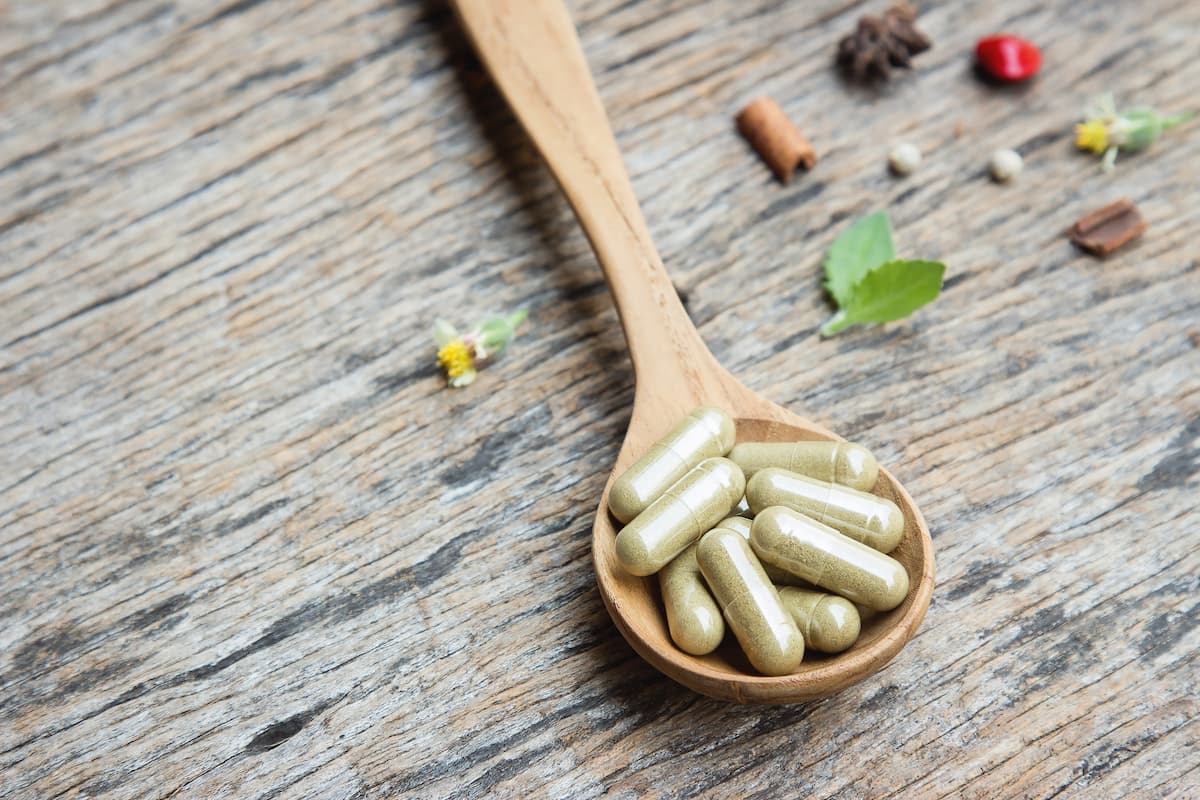
Ashwagandha affects thyroid hormone levels. Find out if you can use it.
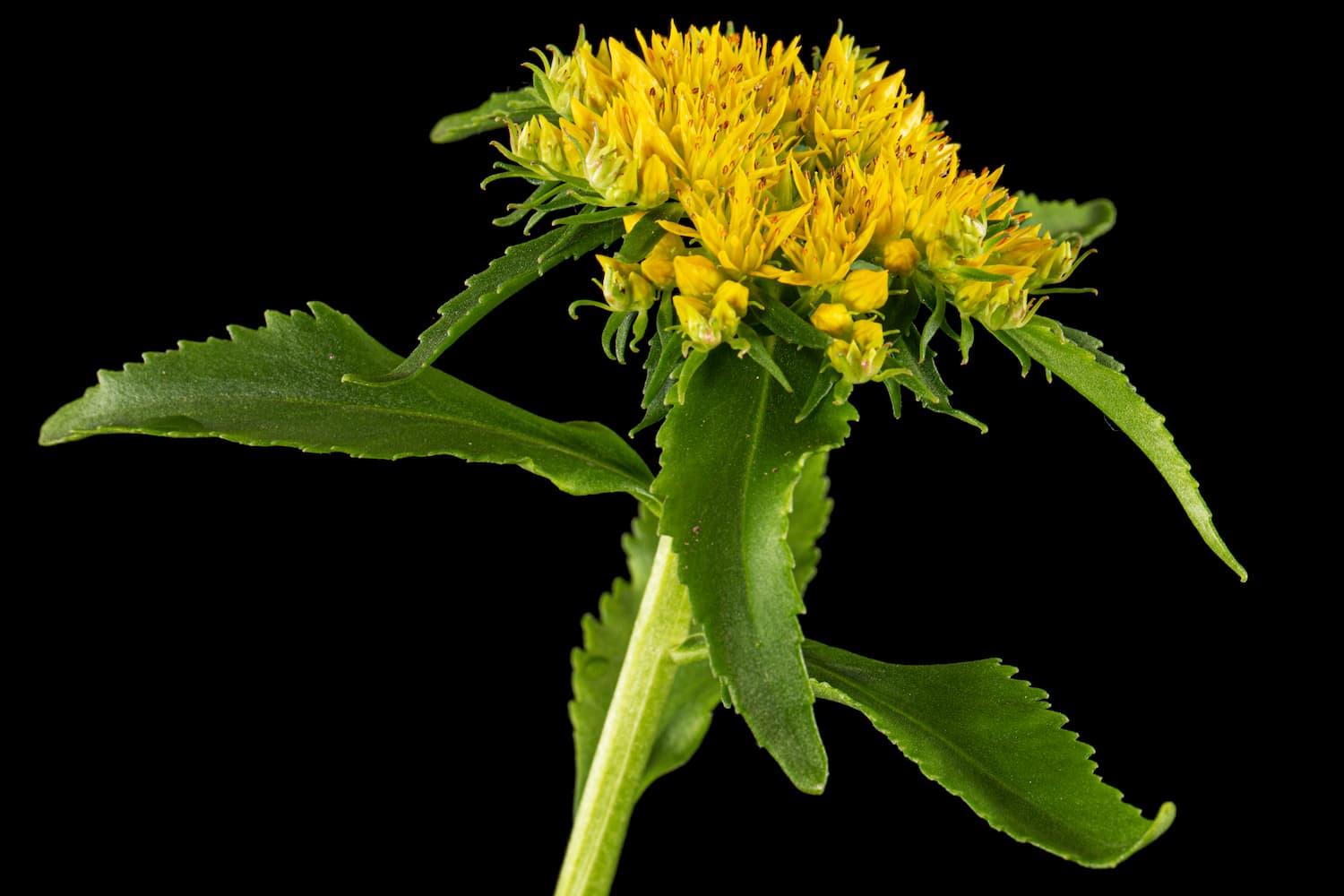
See how mountain pintail can affect your wellbeing.

Check out the opinions of doctors and other professionals about ashwagandha. Also find out what people on the forum think about it.
